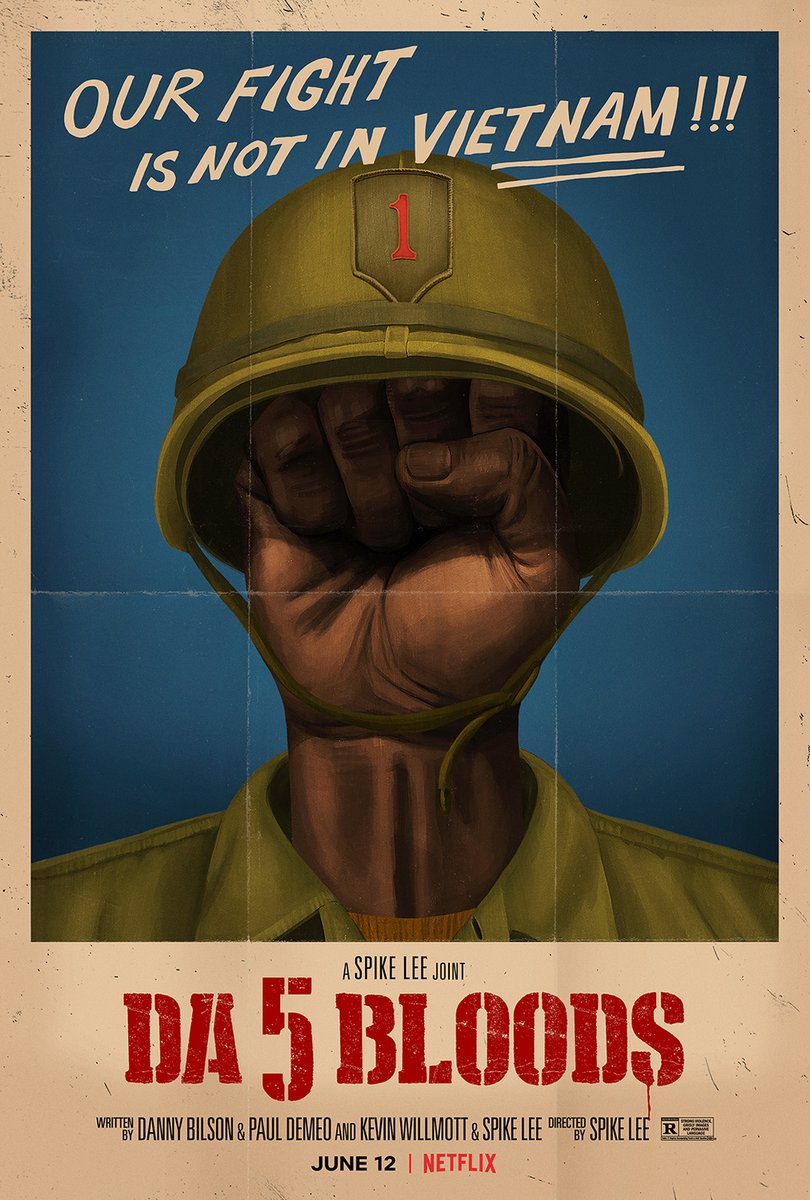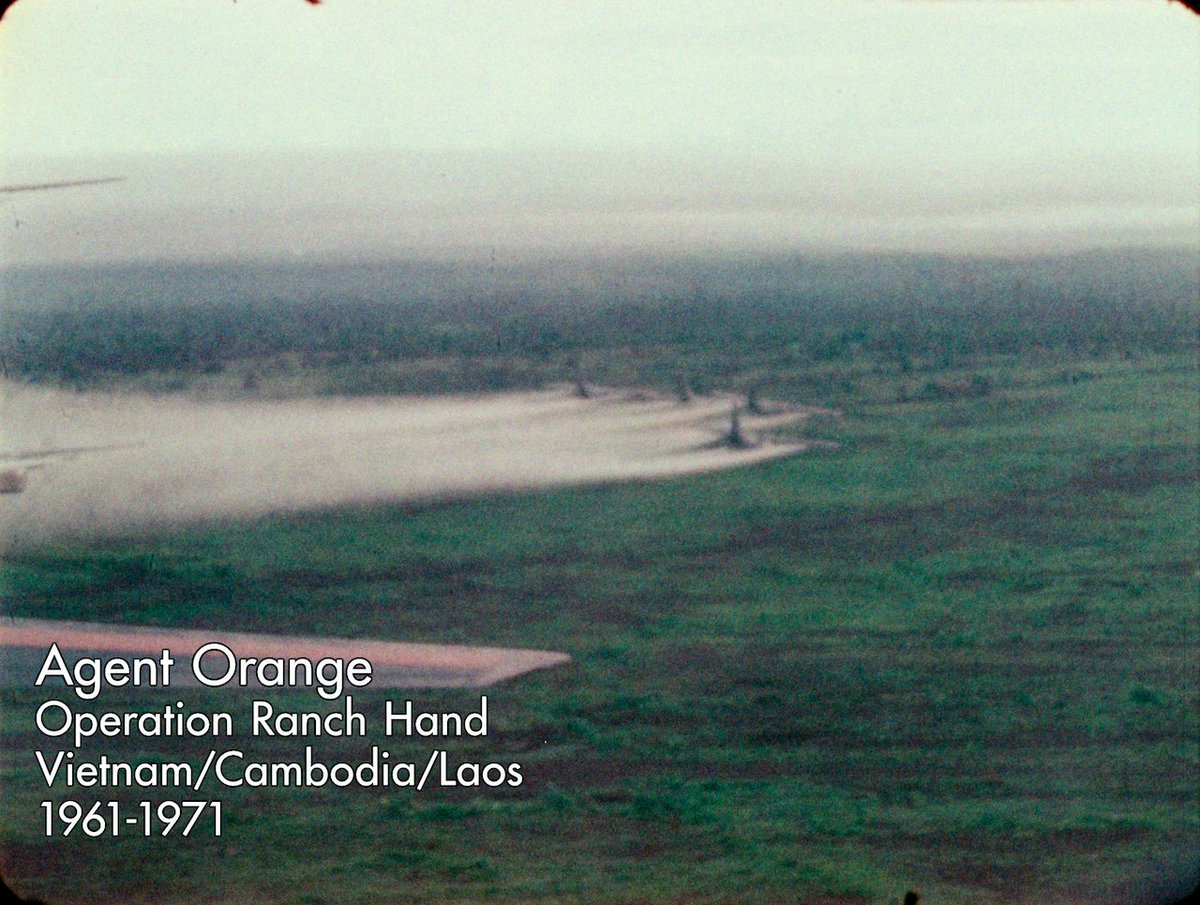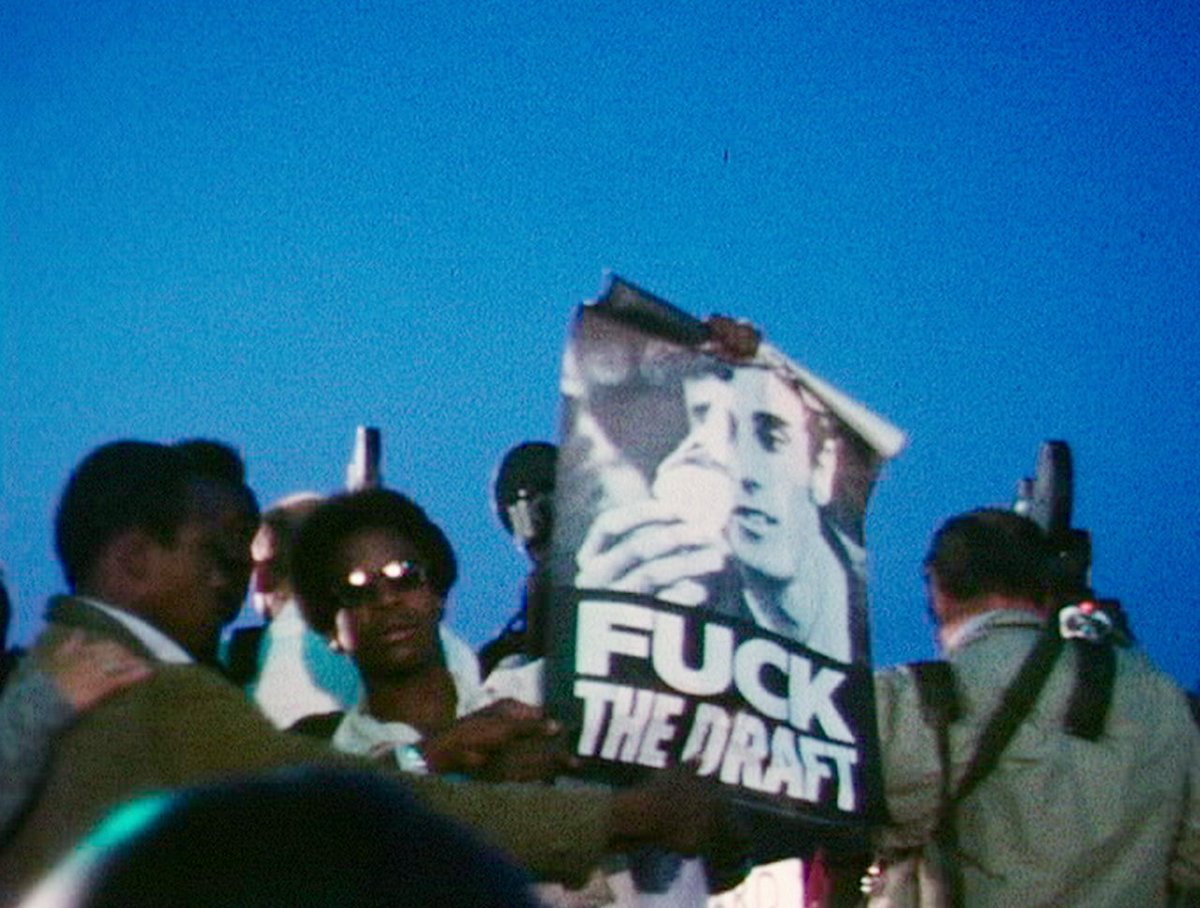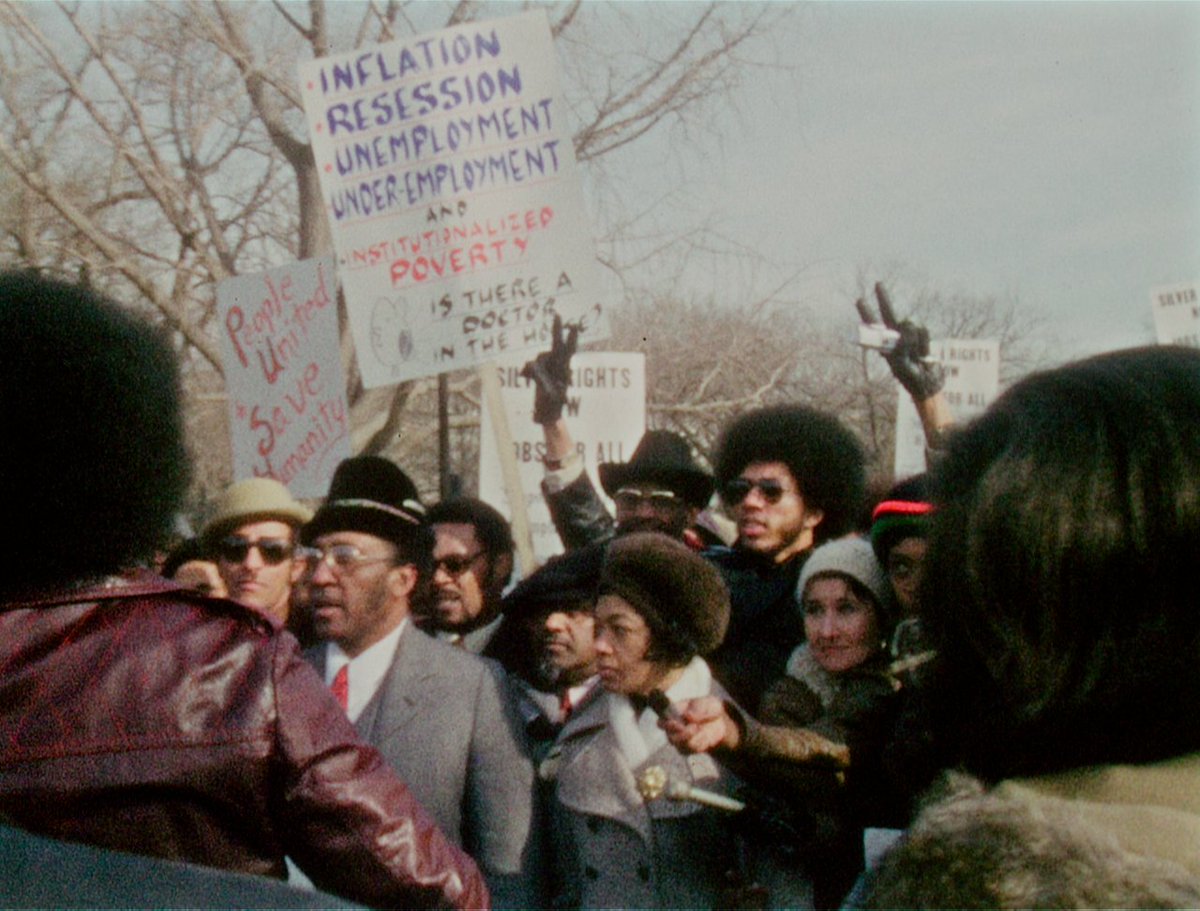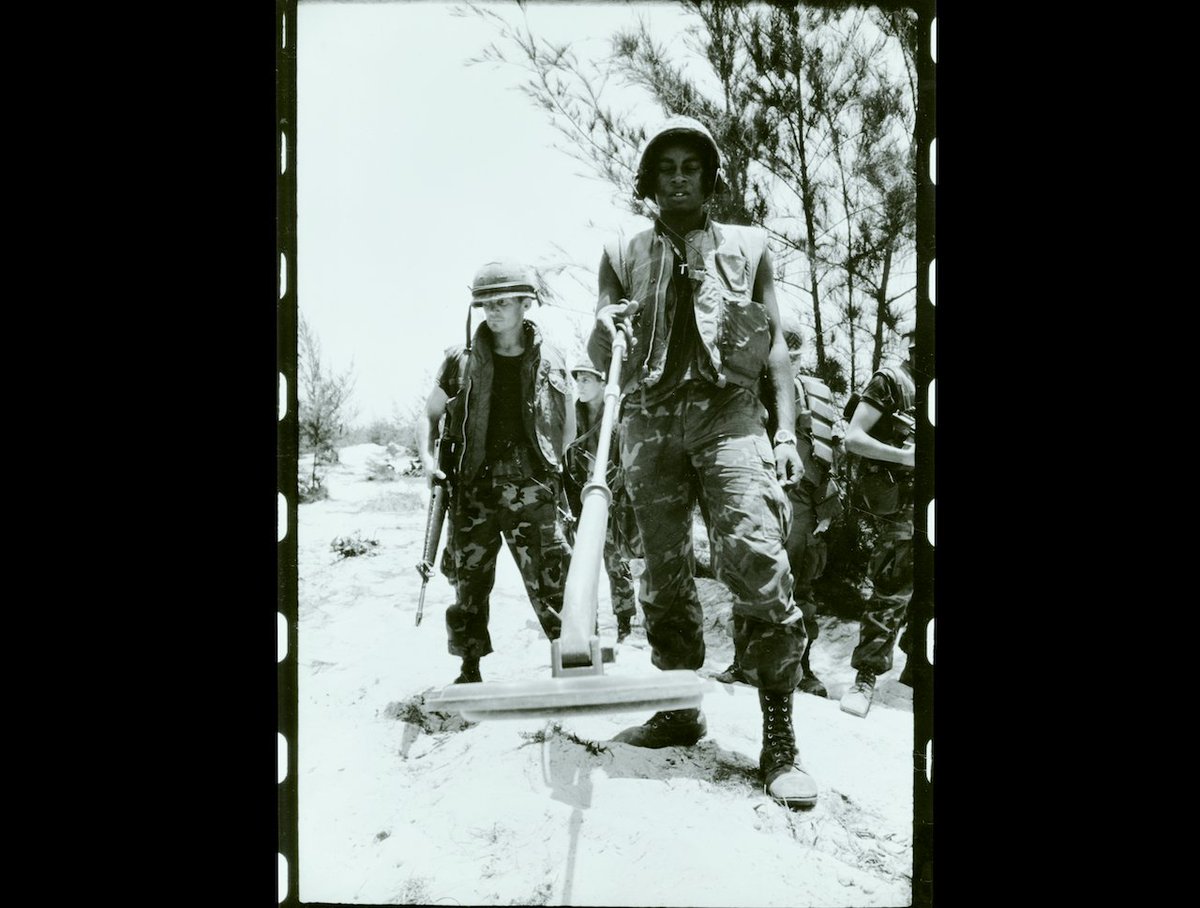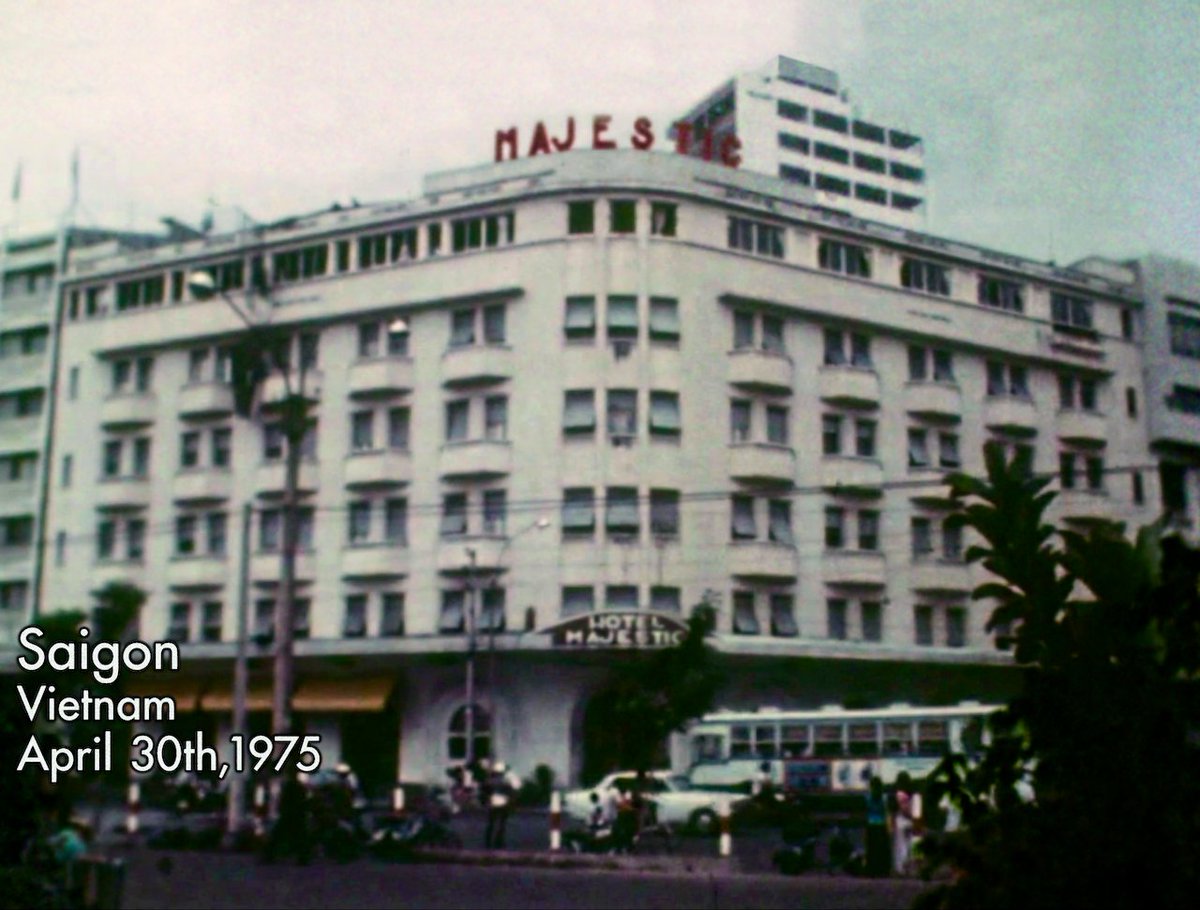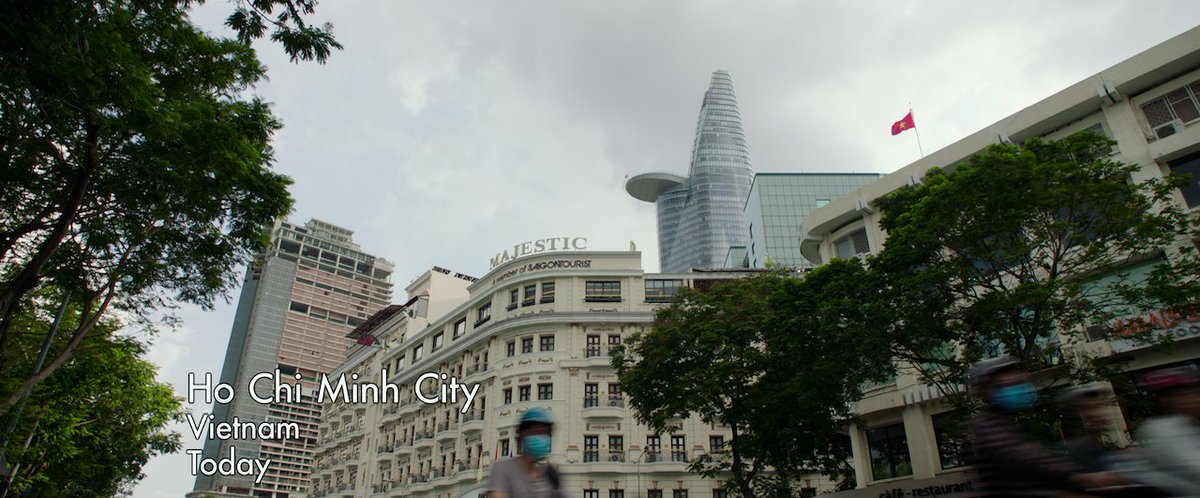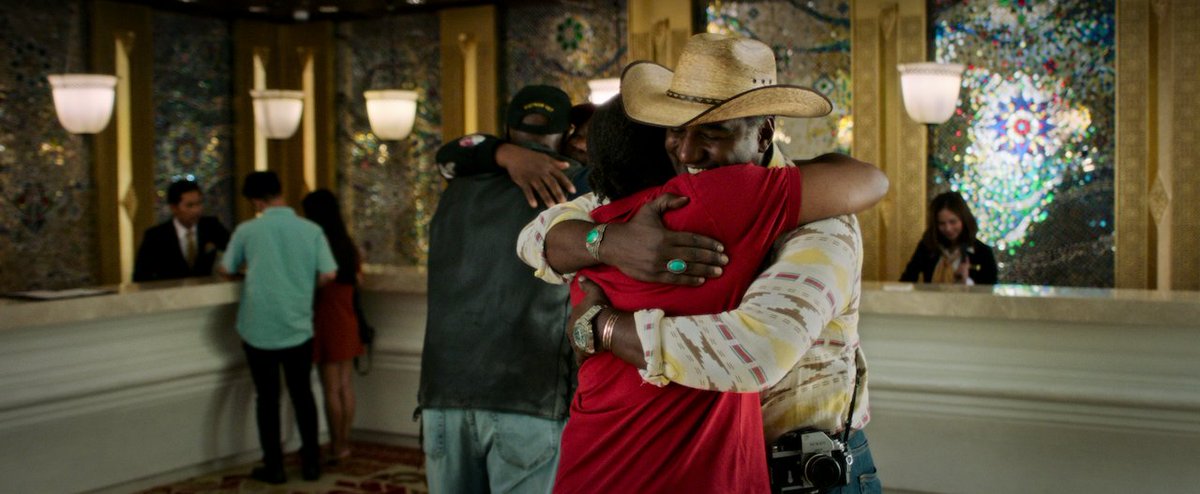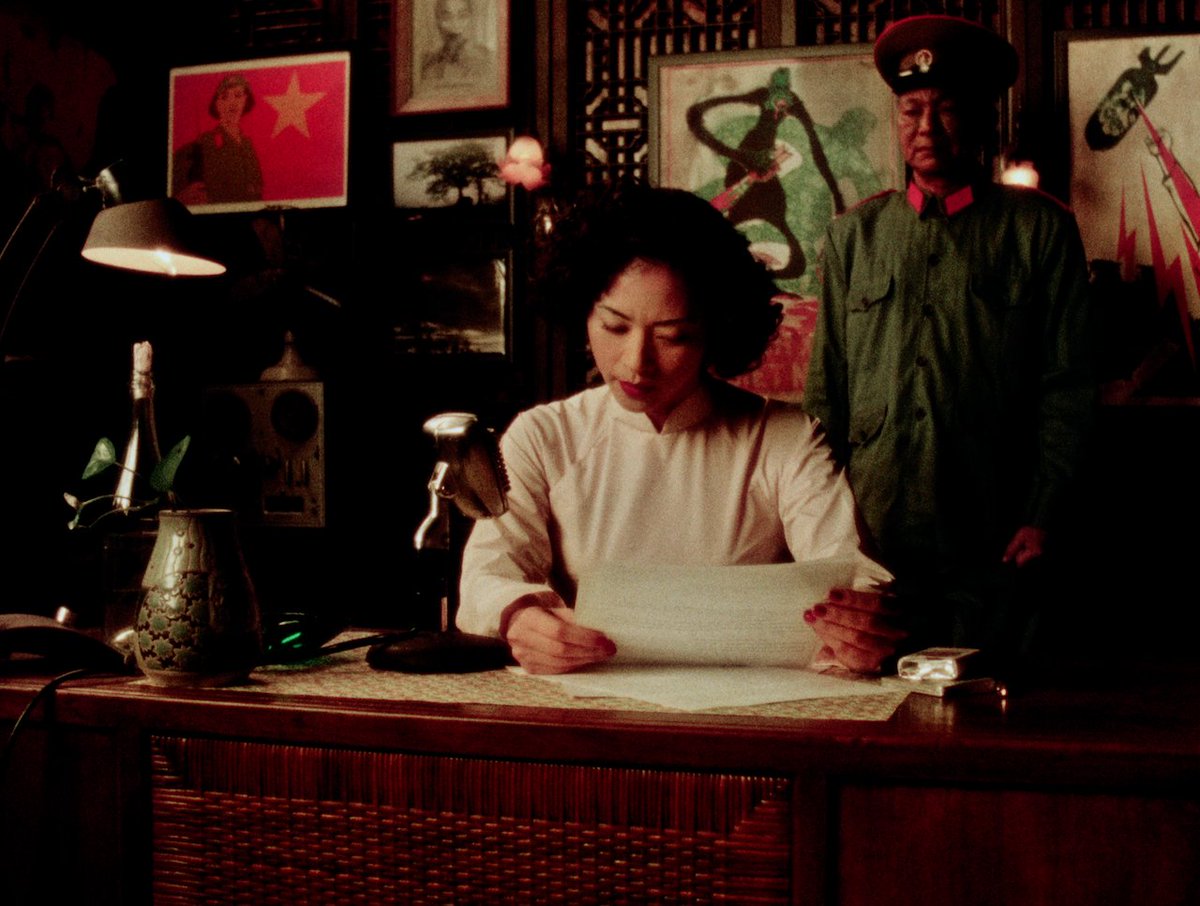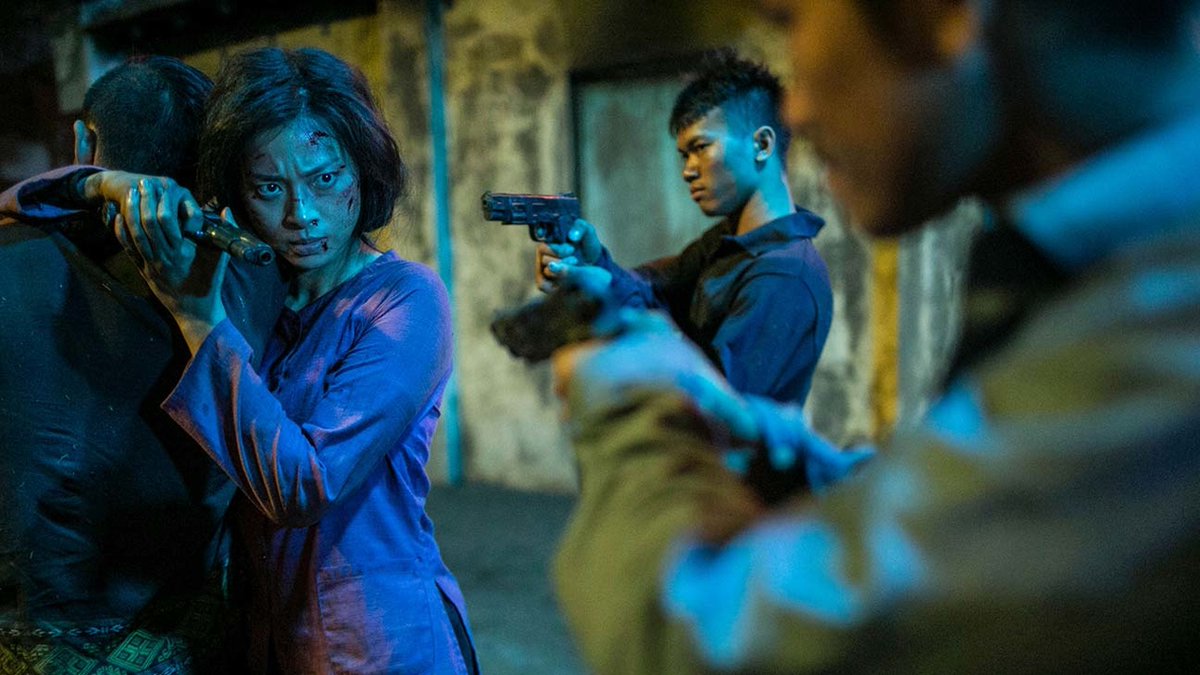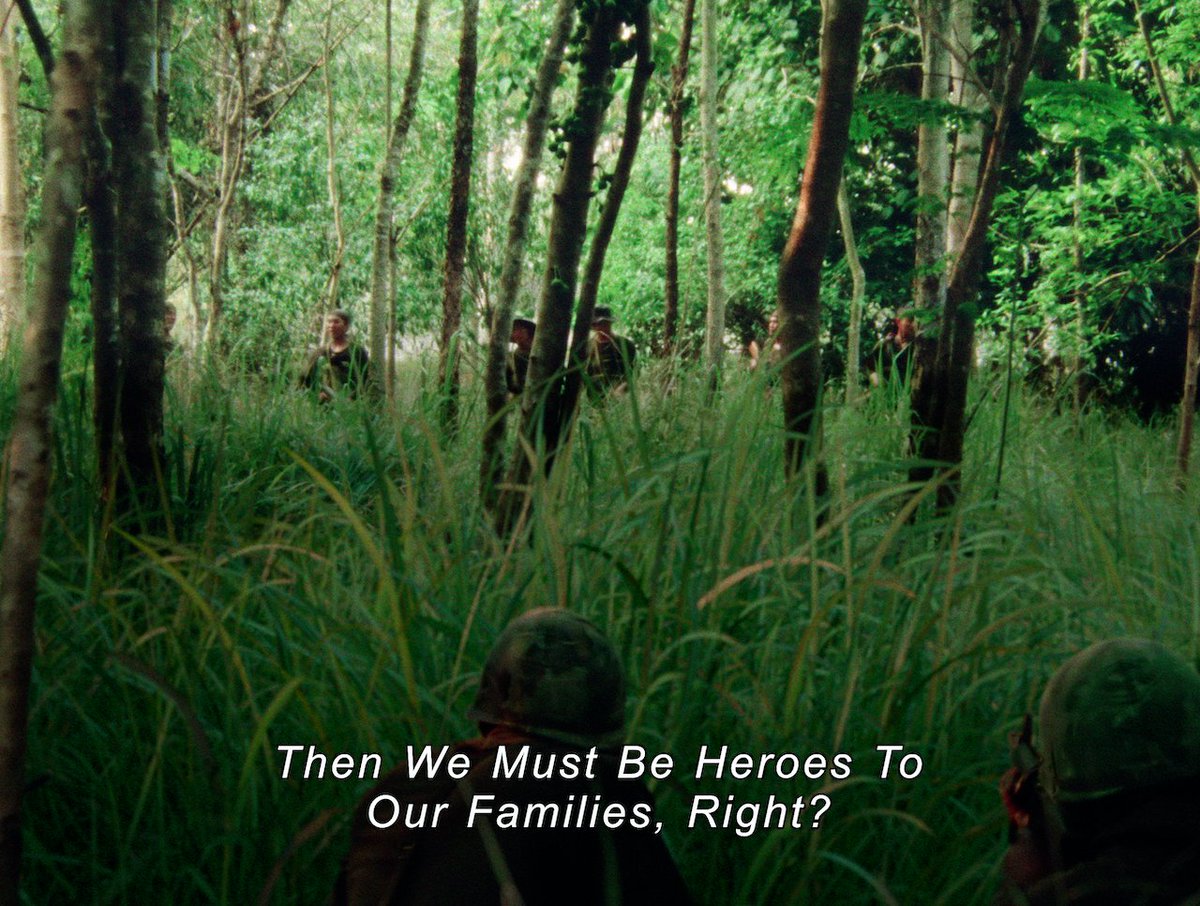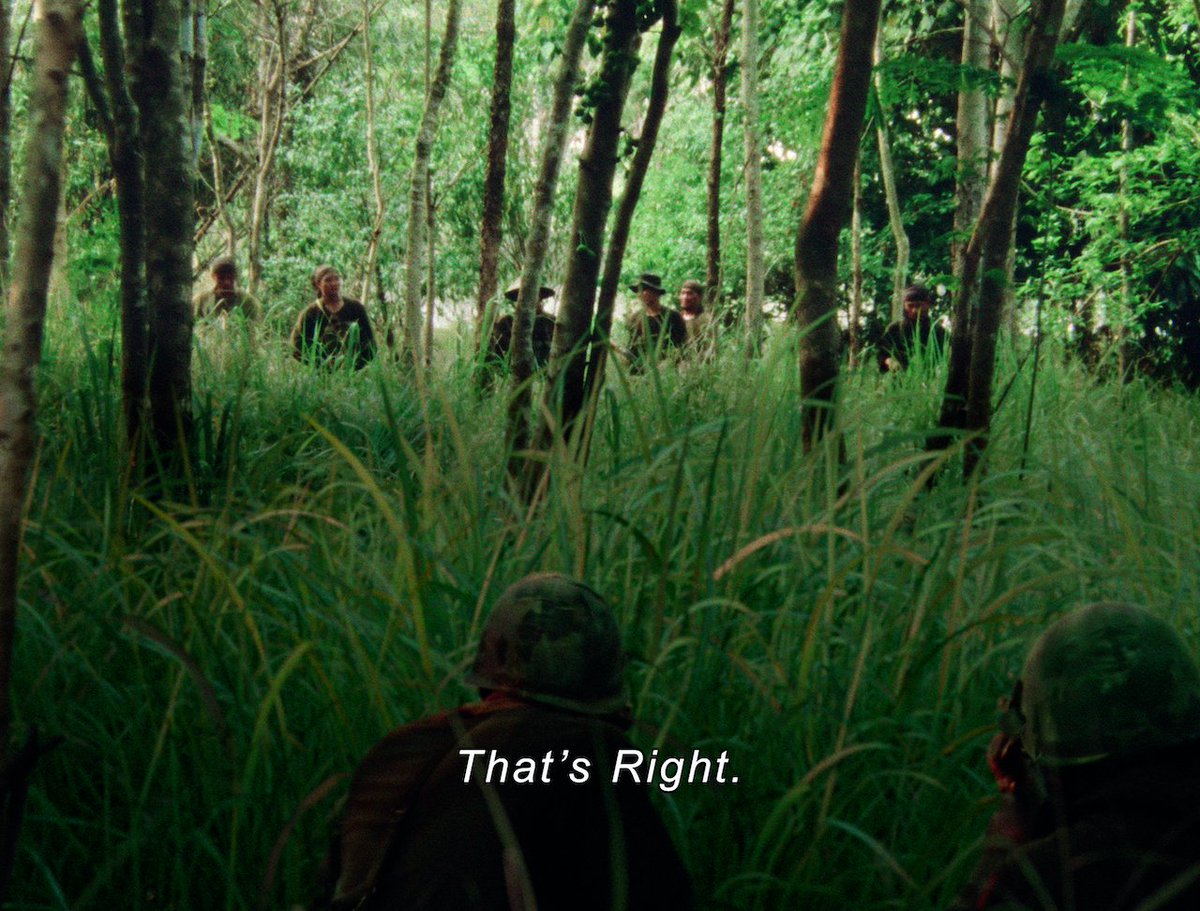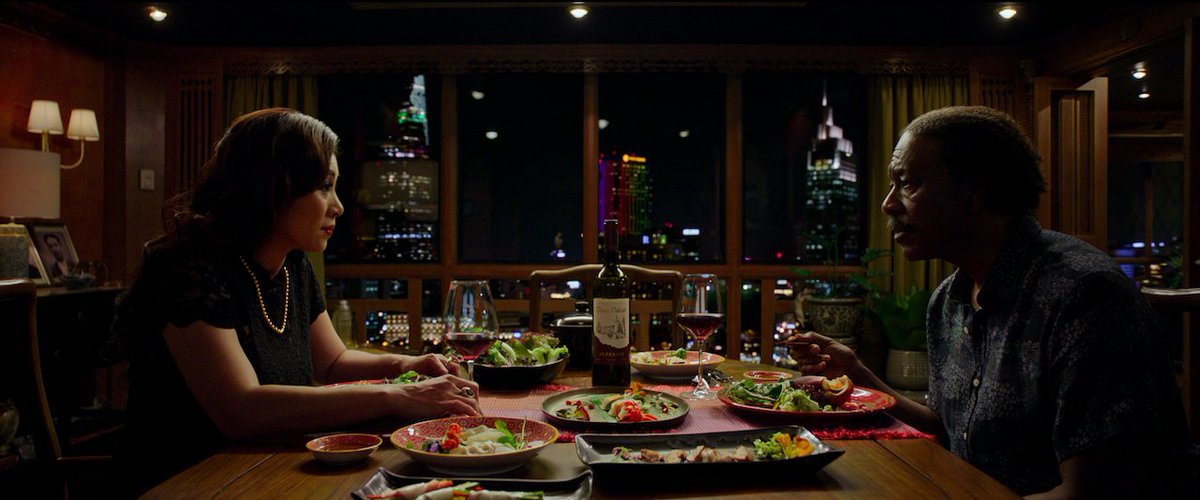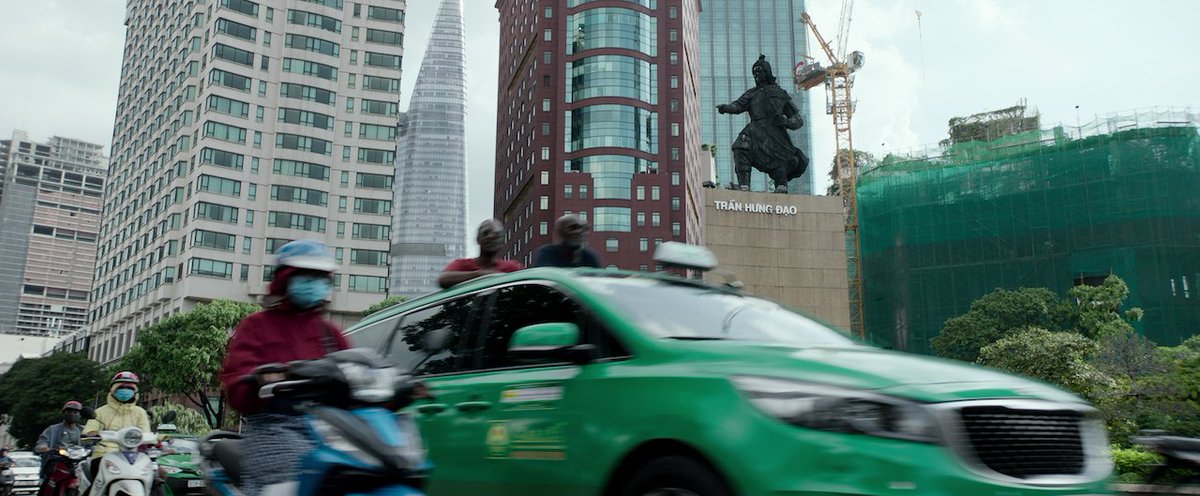Hi, I’m Phuong Le @smallnartless, a Vietnamese film critic, and I’m here to discuss the depiction of Vietnam in Spike Lee’s DA 5 BLOODS. The story follows the return of 4 Black veterans to Vietnam as they search for a buried treasure and the remains of their squad leader. Thread!
I was relieved that the 1st song popping up in the film is Marvin Gaye’s Inner City Blues. The fact that Spike Lee deliberately ditches *that* Buffalo Springfield song & a host of other staple Vietnam War film tunes signifies that DA 5 BLOODS and its POV would be different.
The juxtaposition of various historical footage capturing the protests in the US with Vietnam War atrocities is important. It not only contextualizes the film but also demystifies Vietnam, which has often been cinematically metaphorized as a battlefield between good and evil.
I have written on how APOCALYPSE NOW perpetuated this myth & compelled later films to similarly equate the VN War with the loss of American innocence. In the genre, HEAVEN & EARTH is a rare exception as it was adapted from a Vietnamese refugee& #39;s memoir. https://www.filmcomment.com/blog/feeling-seen-whose-apocalypse-now/">https://www.filmcomment.com/blog/feel...
In contrast, the opening sequence of DA 5 BLOODS holds the US accountable for the violence it inflicts both domestically and internationally. The visual linkage between the civil rights movement and the VN War depicts how Black American soldiers were caught in a two-tiered war.
They were at once victims of racial inequality at home & agents of American imperialism abroad. The film’s references to other VN War films then aren’t a mere "tribute" but a conscious attempt to challenge the white gaze that erases the complexity of Black soldiers’ experience.
Hotel Majestic where Paul, Otis, Eddie and Melvin reunite is one of the oldest hotels in Ho Chi Minh City. Built in 1925, the hotel’s history is intertwined with the legacy of French colonialism in Vietnam. Fun fact: Graham Greene wrote The Quiet American during his stay here.
The dissolve between past and present as Hotel Majestic is introduced then becomes especially significant as it evokes an inescapable past. Indeed, the starting point of the 4 characters’ journey in Vietnam is bound up with vestiges of oppression.
The Apocalypse Now club in DA 5 BLOODS is a real club in Ho Chi Minh City. It opened in 1991, 4 years before the normalization of US-Vietnam relations. The owner chose the name because “everyone knows the movie.” It’s known among the locals as “Apo.”
Hanoi Hannah was a real North Vietnamese radio broadcaster. Her name was Trịnh Thị Ngọ. Her on-air reports usually mentioned specific American units and fatalities in order to incite fear. Popular American anti-war songs were also played. Trịnh passed away in 2016, aged 85.
I’m a big fan of Veronica Ngo who played Hanoi Hannah. You probably know her as Paige Tico in THE LAST JEDI. In Vietnam, she’s also a powerhouse director AND producer. Do check out FURIE on @Netflix, an adrenaline-pumping flick where she hits a man with a jackfruit at one point.
A big problem I have with VN War films is when a Vietnamese character speaks, which rarely happens, & it doesn’t even sound like Vietnamese. Perhaps since these films were often not shot in VN, filmmakers had to employ non-Vietnamese natives who spoke the language phonetically.
I was pleasantly surprised that in DA 5 BLOODS, not only do the Vietnamese dialogues sound like real Vietnamese, they are also subtitled. A particularly emotional moment for me is this glimpse into the inner lives of North Vietnamese soldiers which is rarely seen in other films.
This scene is particularly poignant as it subverts a common trope in VN War films where the unsuspected American soldiers are attacked by the "sneaky" Viet Congs. Here North Vietnamese soldiers are the ones being ambushed, right when they are talking about their loved ones.
Another small detail which fascinates me is the bottle of wine shared by Otis and Tiên during their reunion dinner. The brand is Vang Dalat, a lovely Vietnamese wine to bookend the occasion, yet the history of wine-making in Vietnam once again harks back to French colonialism.
If the minefield scene in DA 5 BLOODS is shocking to you, it is a daily reality for many people in Vietnam. Since the end of the war, over 40,000 people have died from buried explosives. My father’s childhood friend lost his hand from a landmine. He was only 6 at the time.
Finally, my most favorite shot is a blink-and-you-miss-it moment. Here Paul and Otis, enjoying the cityscape from a cab, pass by a statue of Trần Hưng Đạo, a legendary military leader in Vietnamese history. He fought off three Mongolian invasions during the 13th century.
The statue points to Vietnam’s long history of fighting against foreign invaders. It also suggests that the timeline of the Vietnamese people does not begin & end with the Vietnam War. With a 4000+ years old culture, Vietnam has existed longgg before the arrival of the Americans.
And yet, the presence of this statue among the modern skyscrapers of Ho Chi Minh City implies that, the remnants of wars, the Vietnam War included, are inevitably entangled in our national identity. The war never ends.

 Read on Twitter
Read on Twitter